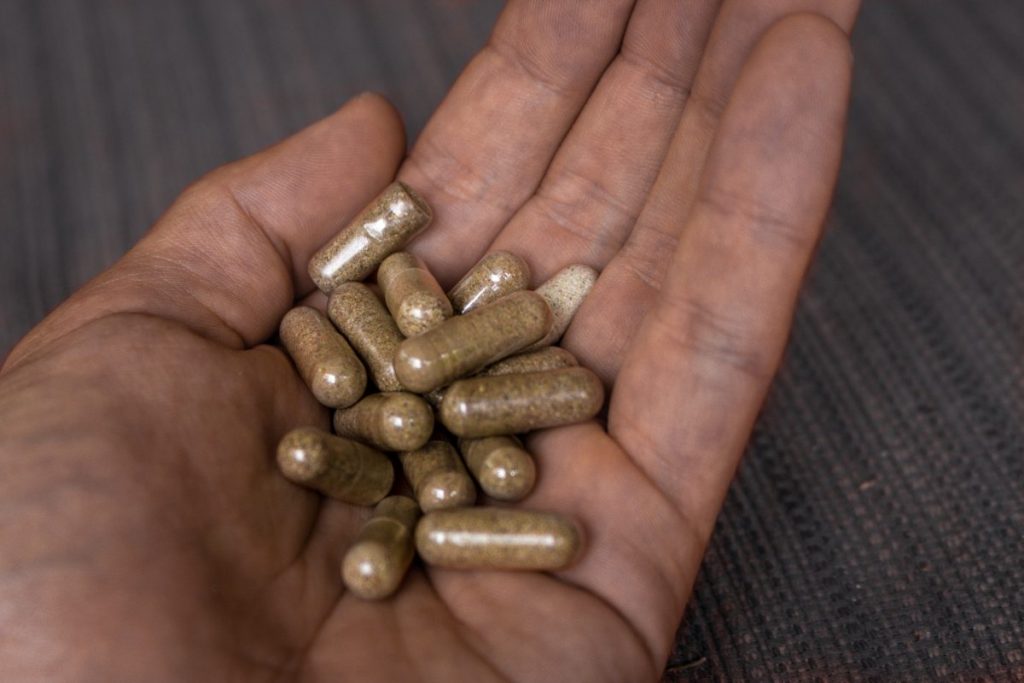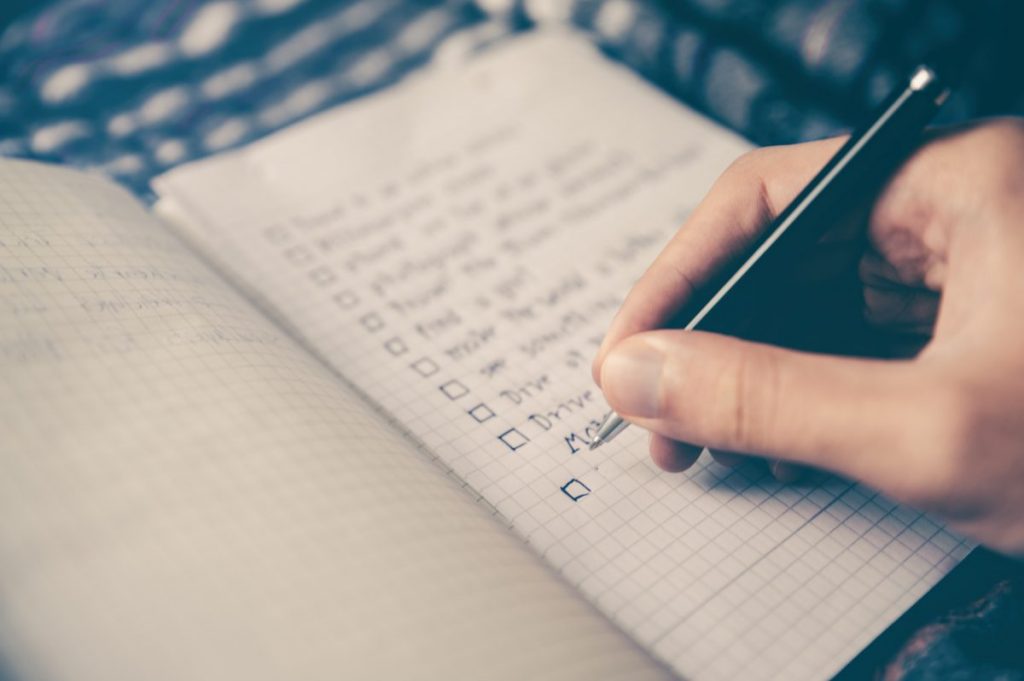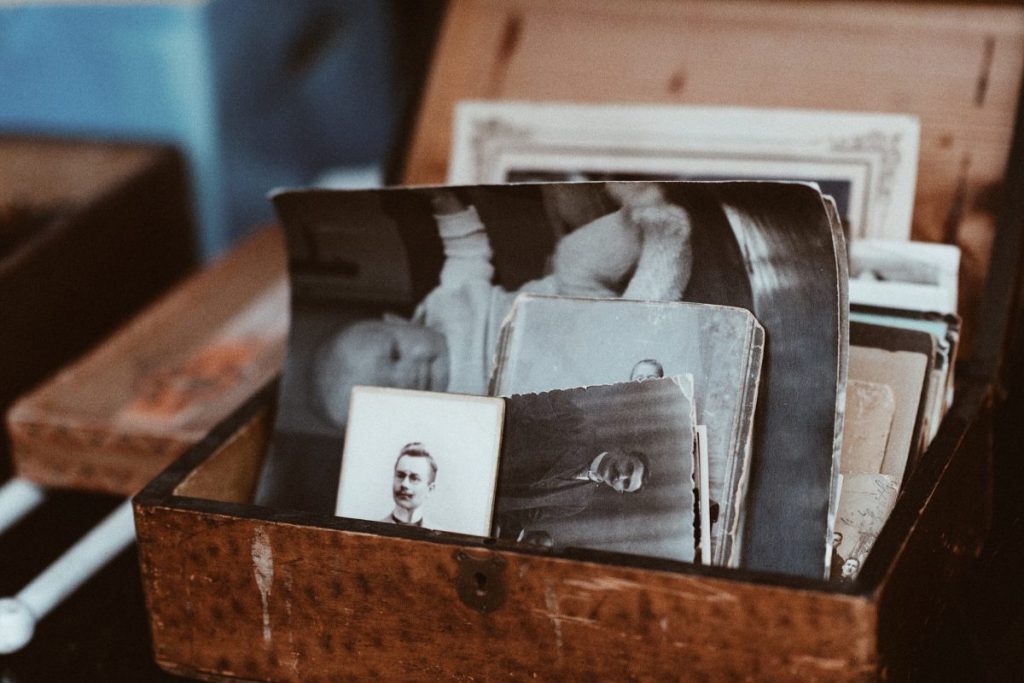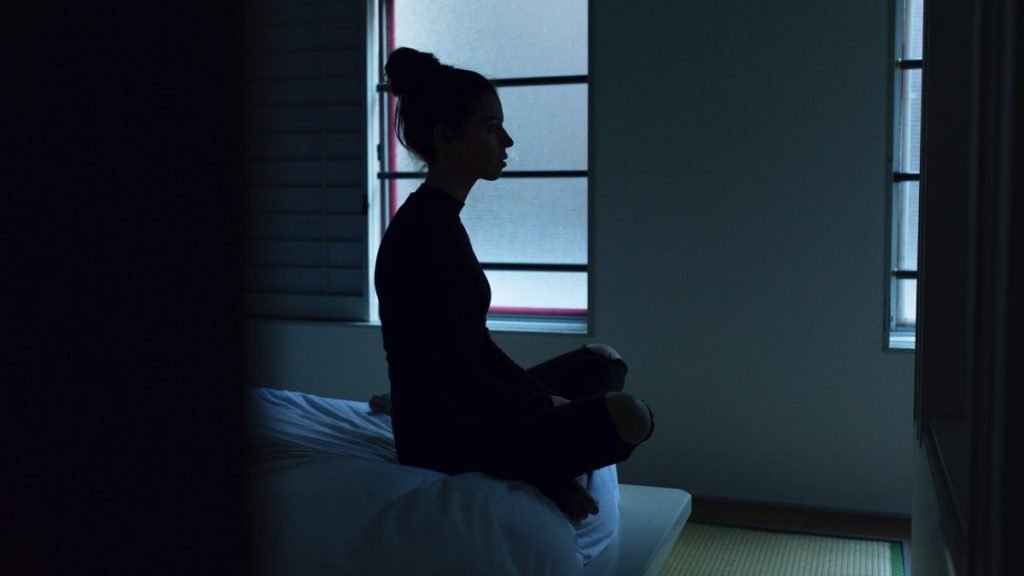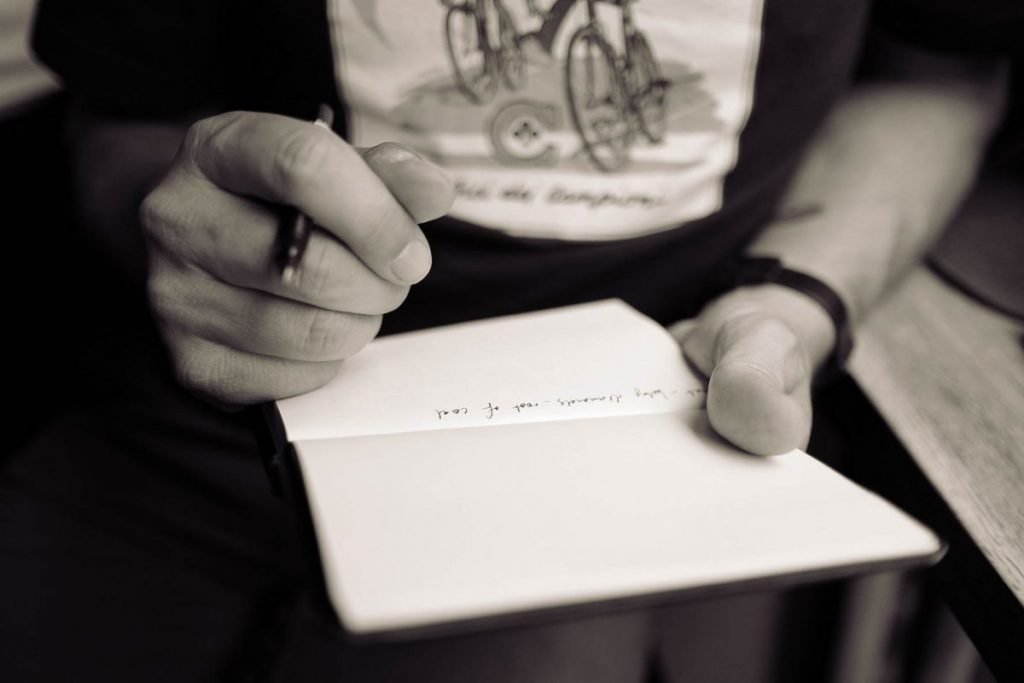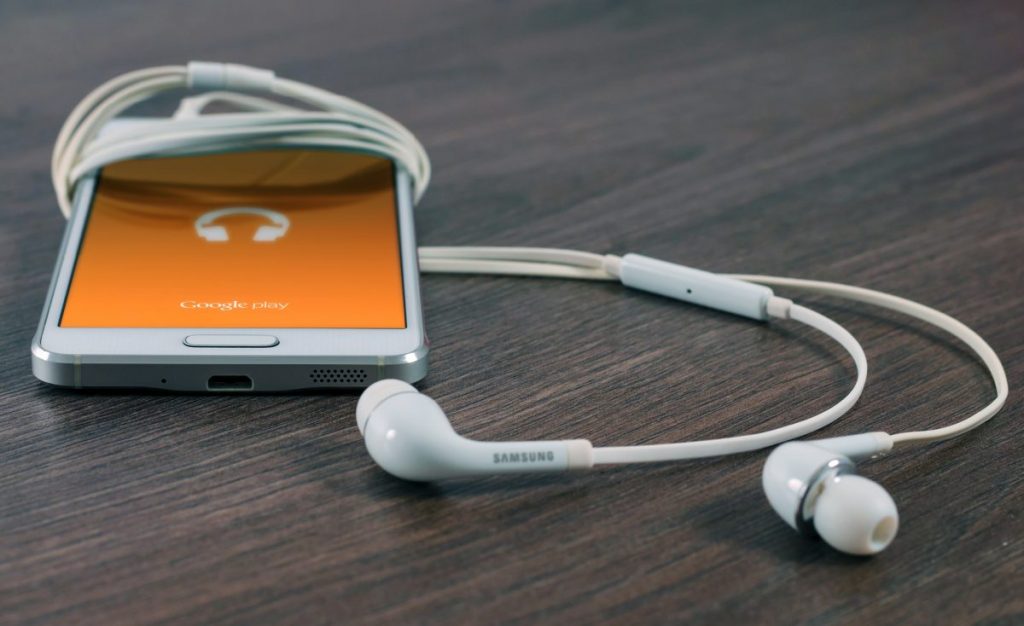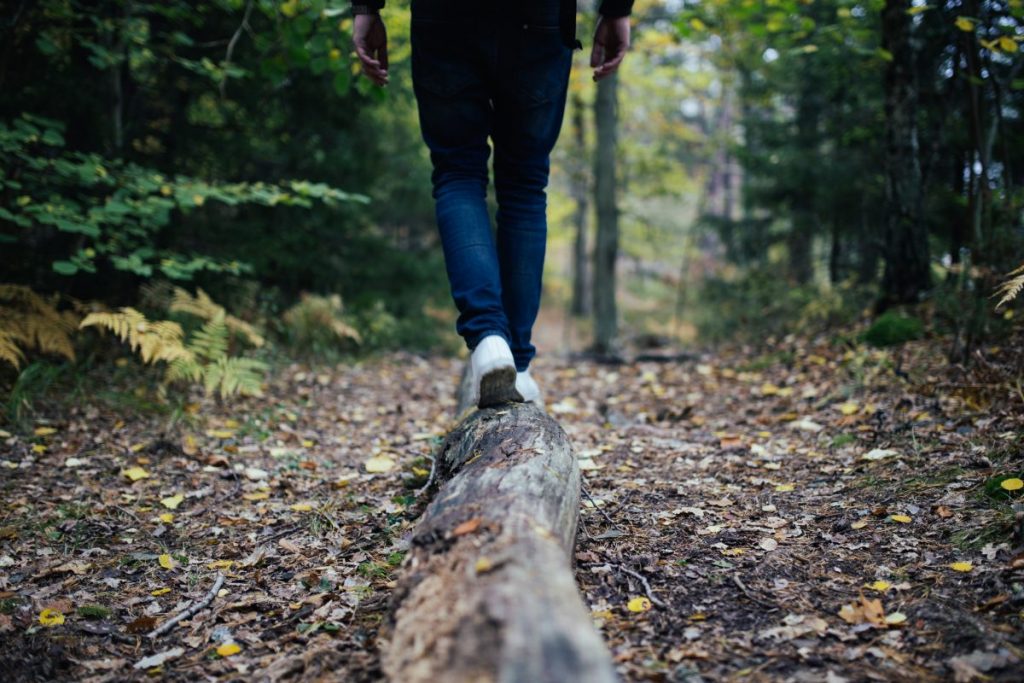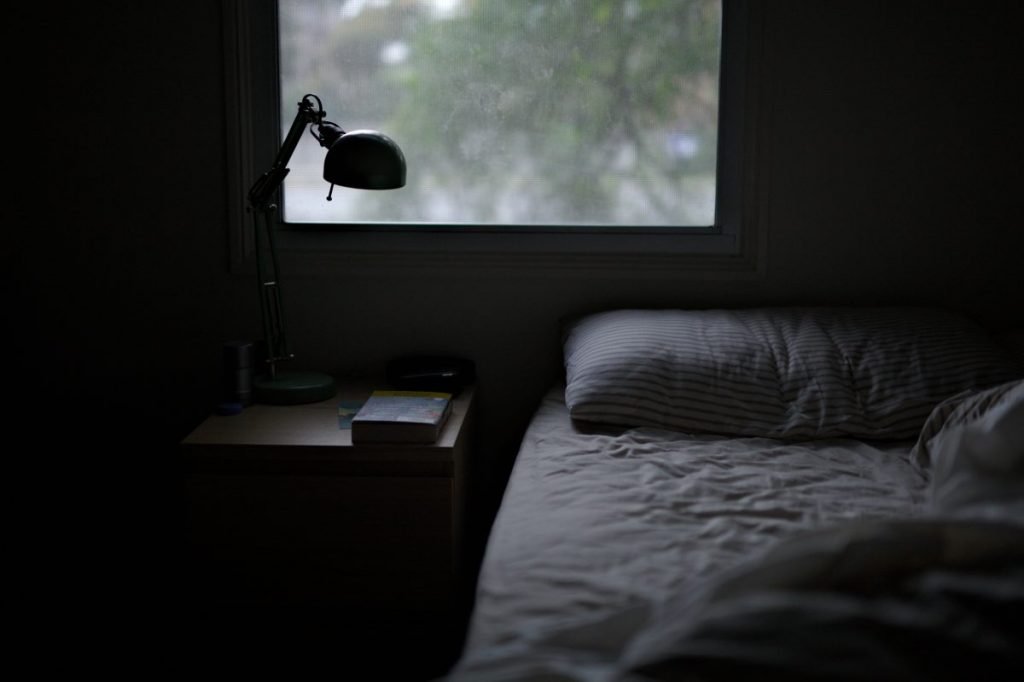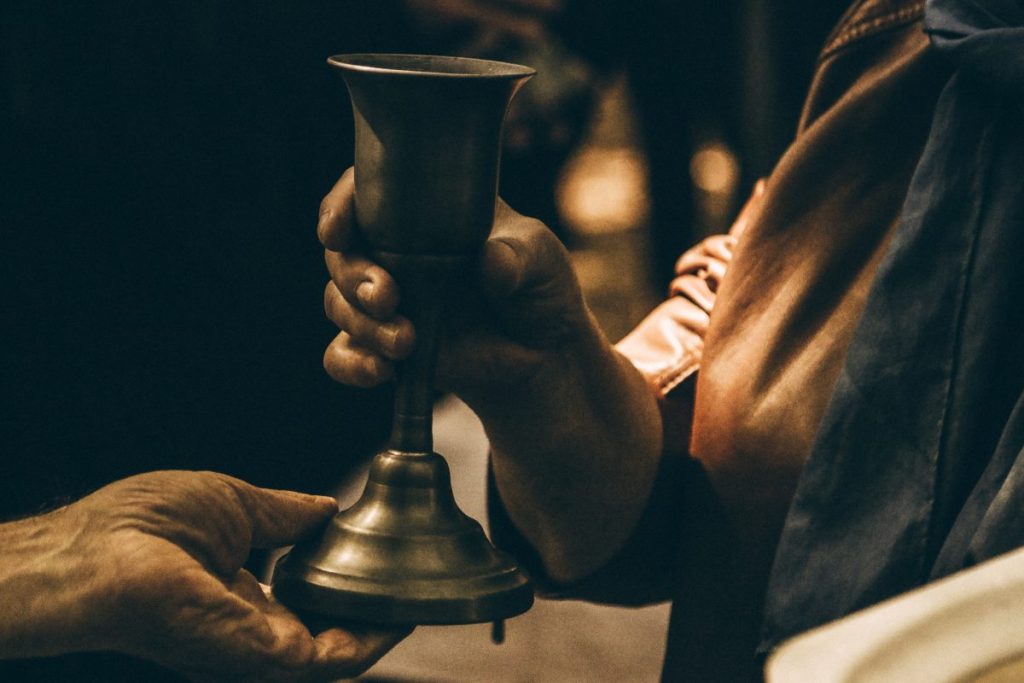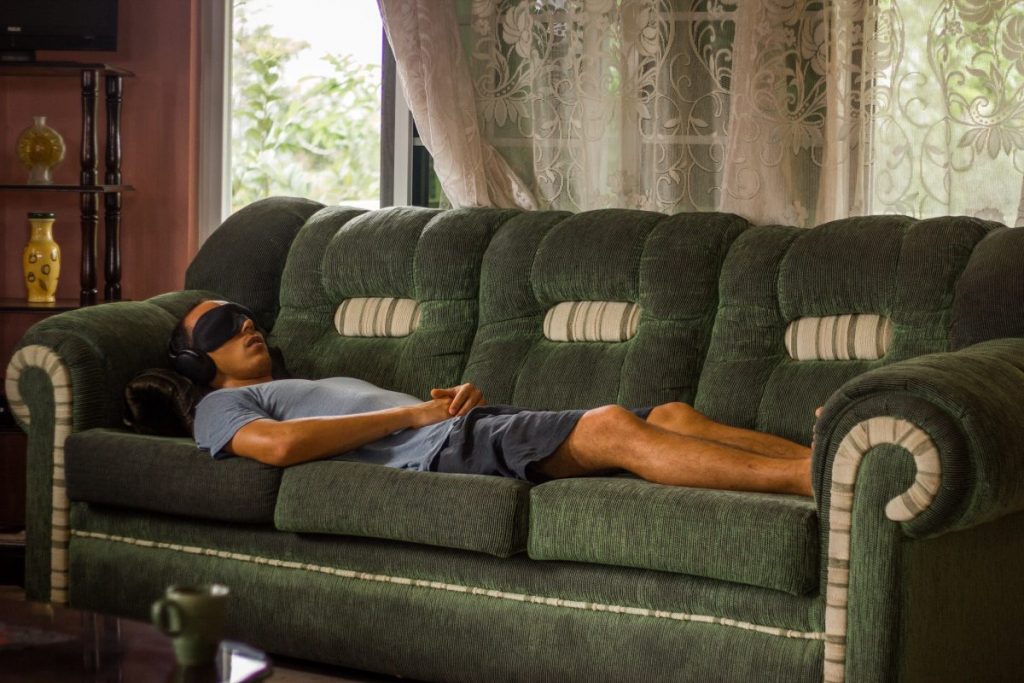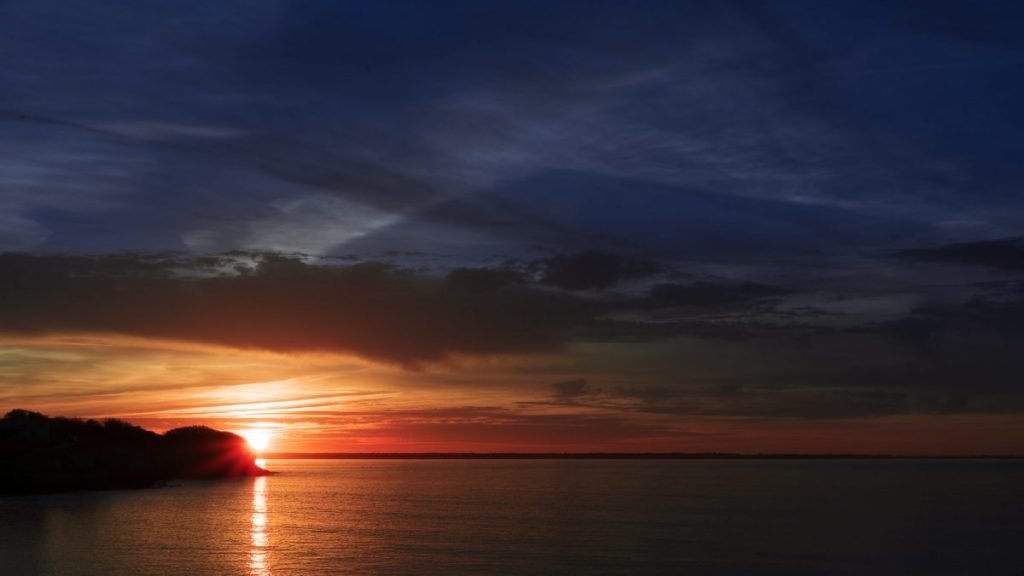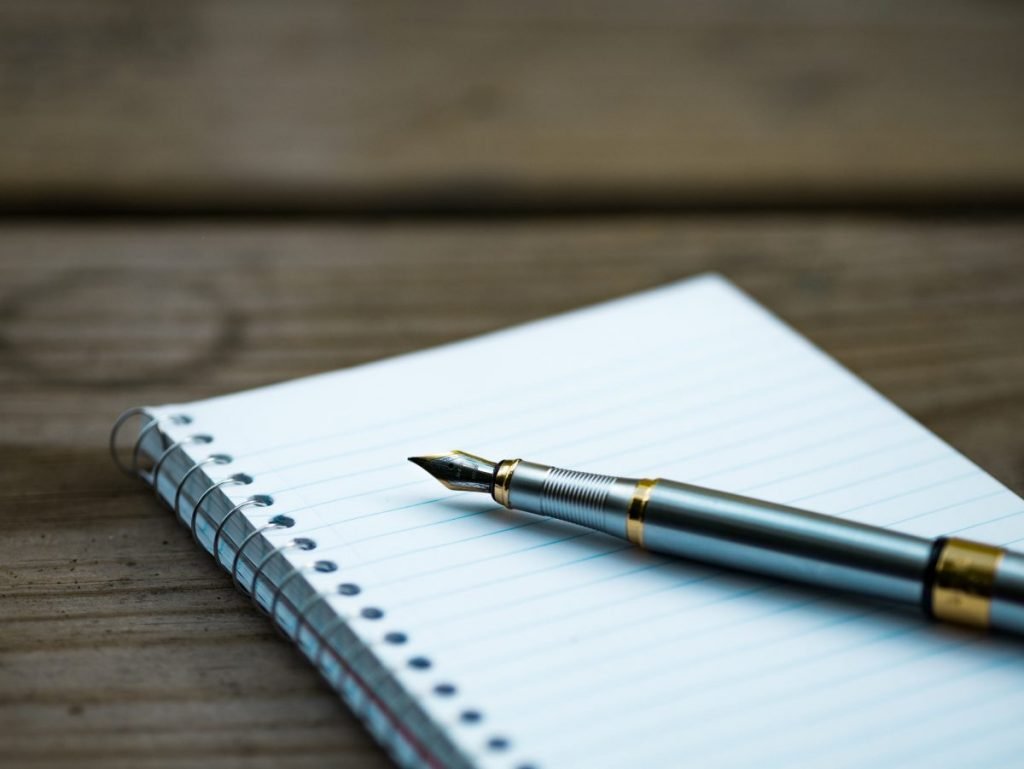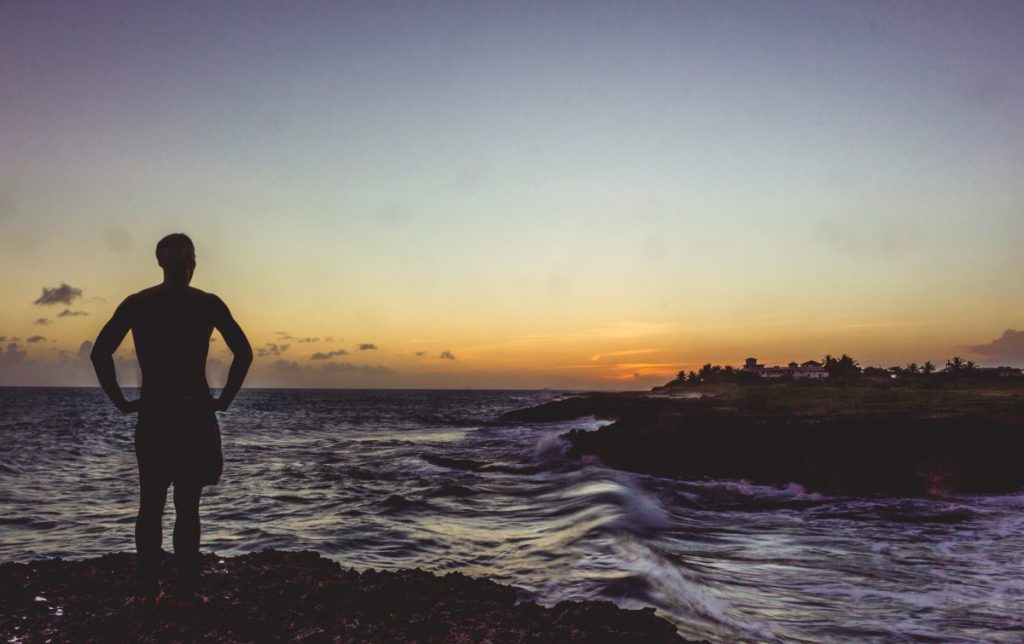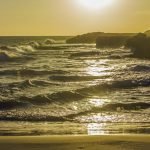Explorer’s Guide: Using Psychedelics For Peak Experiences
Mystical. Peak. Transcendent. Religious. Whichever term you’ve heard, I’m talking about something exceptional and profound – the type of experience that ranks as one of most the meaningful in life.
“The emotional reaction in the peak experience has a special flavor of wonder, of awe, of reverence, of humility and surrender before the experience as before something great.”
– Abraham Maslow
Psychologist Abraham Maslow believed that peak experiences are characteristic of psychological health and play an important role in self-actualization – right at the top of his famous hierarchy. These experiences are typically spiritual in nature and are often followed by therapeutic after effects or dramatic personal growth.
Planning A Mystical Experience
Psychedelics, AKA entheogens – ancient Greek for ‘generating the divine within’ – can facilitate mystical experiences more reliably than any other currently known method (seeing the earth from space also seems fairly reliable but this is currently even less accessible than psychedelics). There is recent research to support this relationship, though it should be remembered that these trials are done in highly controlled settings – and I believe a methodological approach helps to increase the chances of such an experience.
So this is a guide to set you up for a soul-stirring, therapeutic, sacred, self-actualizing trip. Its a compilation drawn from my own experience and practices drawn from a few sources. You can find a list at the end.
This guide includes:
- Preparation: Checklist + Weeks and Days Before
- Navigation: What to do during the trip, and in difficult moments
- Integration: What to do the day after, how to begin to integrate insights
Dosage

The smaller the dose, the less likely a mystical experience. Psychedelic research has shown a clear correlation between a larger dose and a more complete mystical experience. They also found that the more complete the mystical experience, the more benefit the recipient had to their psychological wellbeing (on scores of depression and anxiety). However, if you don’t have much experience with psychedelics I don’t recommend going for a big dose for your first time. Better to become somewhat familiar with them and figure out your tolerance and reaction.
For most people a breakthrough dose will be:
4-6 grams dried mushrooms
20-55 grams fresh psilocybin truffles
200-300 micrograms LSD
Check Erowid for peyote and San Pedro.
Preparation
There are two general aims for the preparation of your trip:
1. To have you approach the trip well rested, in good health, and with a positive state of mind.
2. To get you thinking about your life in a larger context.
Checklist
You will need:
- 2 full days free. One day for the trip + the day after. The day before too, if possible. For the trip day you should be totally free and fine to switch your phone off and effectively disappear from the world.
- A comfortable, private indoor space (totally private for 1 day). Somewhere you feel safe.
- Device to play music e.g. ipod, laptop, CD player. (I recommend digital player for ease of use)
- Good pair of headphones
- Eye mask or blindfold
- Photos for ‘picture trip’
The Picture Trip
[The ‘picture trip’ is a technique that was employed by a pioneer of psychedelic therapy, Leo Zeff. This is adapted from the book about Leo and his methods, The Secret Chief Revealed.]
Before the trip you will need to gather some photos. These photos will be a history of your life.
Pictures To Gather:
- Yourself, one at age two and one every two years thereafter through adolescence, up to adulthood.
- Two pictures each of your mother, father and any siblings; one when they were young but you can still remember them, and a recent one.
- Pictures of any other family members that are or were significant in your life.
- A picture of your husband/wife, or any woman or man who has had great significance in your life. Lovers, current or past. If you’re married, wedding pictures.
- If you have children, a picture of them when they were about two years old, and a recent one.
- Any other significant pictures. Any pictures with an emotional charge.
As you go through your photos to find these, spend some time looking through your photo collection. Spend a few moments with each photo, looking at it and seeing what you feel with each one. If any memories or feelings come up, sit with them and see where they go. When you come across a picture for the picture trip, put it aside. Try to do this no further away than a week before the trip, as close to the time of the trip as you can.
The Sitter
Decide if you want a sitter – someone to keep an eye on you and help you through any difficult periods should they arise. It might be easier to let go completely if you know you have someone there to take care of you, or you may prefer to be alone.
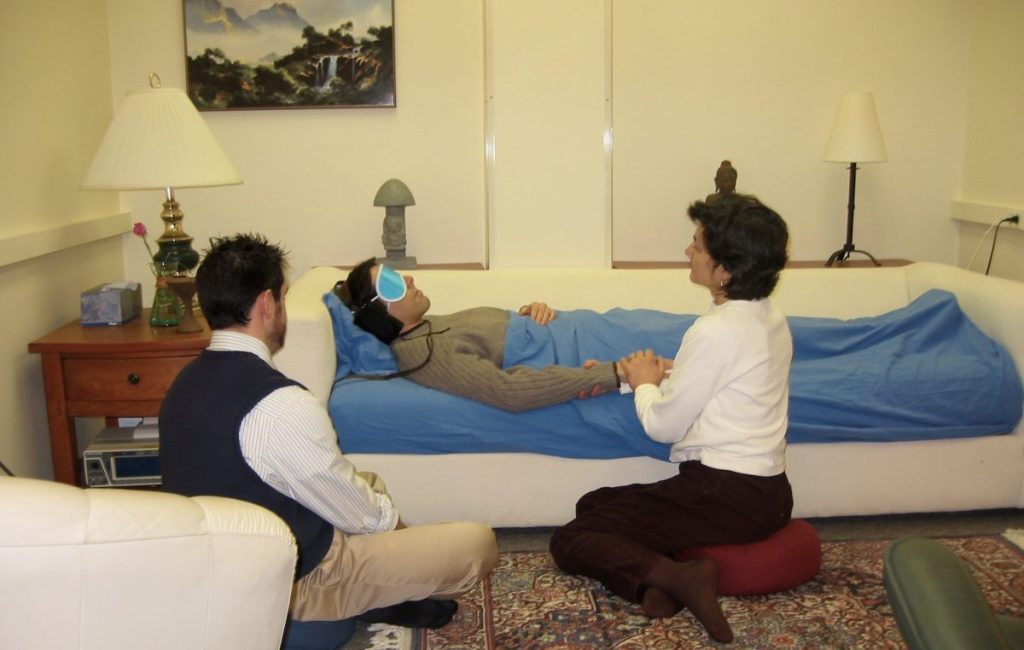
Research setting for a study into the effects of psilocybin at John Hopkins University.
If you decide on a sitter, choose someone you trust. Agree the date with that person ahead of time. You’ll only need them for the trip day, but they should be free from the time you begin until the end of the day. They might not have to do much but assure you of your safety and be there for you.
If for whatever reason you’re going ahead without a sitter, I’d recommend spending more time learning the basics of meditation.
The Weeks Before
Learn the basics in meditation
The ability to relax and let go is key when it comes to the more intense parts of the session and important in maximizing the therapeutic aspect of your trip. For this reason, having some familiarity with some basic techniques of meditation will be enormously helpful – its practice in how to calmly observe your current reality without resistance. It will help you to open yourself to the experience rather than resisting, and go deeper, moving past blocks.
Meditate for at least 10 minutes a day for the two weeks leading up to your trip.
Especially important if you don’t have a sitter as in the absence of someone else to help relax and reassure you, you’ll need to relax yourself. If you have the time and the inclination, a silent course is the best way become well versed with meditation quickly.
Otherwise a good place to start is the free app Insight. There are also other apps and plenty of guided meditation resources online.
Think About Your Intentions
Why are you doing this? What do you hope to accomplish or gain from the experience? Be honest with yourself. Having a clear intention doesn’t mean that it’ll be fulfilled but it’s important in framing the experience.
Keep a Gratitude Journal
Write down 5 things you are grateful for everyday in the week leading up to your trip. It can be as small or profound as you like, from ‘nice weather today’ or ‘a delicious lunch’ to ‘family’ or ‘health’. Sit with the feeling of gratitude that it brings for a minute.
Check medication
If you’re taking medication, make sure there are no possible adverse interactions with these medications and the substance you’re taking. If you’re taking medication for a something that can be managed by lifestyle changes – exercise, weight loss, diet adjustments, quitting alcohol, tobacco, caffeine – try these first to see if some of the medications may no longer be necessary. For these processes, see your doctor.
The Days Before
Prepare your playlist and music player
Generally it’s recommended to use instrumental or world music with lyrics that are unintelligible as understandable lyrics can be distracting and limit the experience. Ambient and classical music are good general recommendations. You can make a playlist for the whole trip, or you can have all songs and albums that you might want ready and easily accessible on your player. Be sure to have at least 8 hours of music ready and allow for passages of at least 45 minutes where you don’t need to change or put on more music.
Listening to relaxing music in the initial phase is a nice way to help calm yourself when the substance is taking effect and you’re coming up. Save more intense tracks for later.
Links for ideas:
How To Pick Music For People On LSD, From A Scientist Whose Job That Is
Sacred Knowledge: Hopkins Playlist For Psilocybin Studies
Full playlists from the scientists working in psychedelic research:
Mendel’s Kaelen’s Psilocybin Playlists on Spotify: Therapy Playlist 1 | Playlist 2
Mendel Kaelen Psilocybin playlist 1 on Mixcloud
Bill Richards psilocybin playlist | Spotify | iTunes
Kelan Thomas psilocybin playlists on Spotify: Playlist 1 | Playlist 2
Tidy up loose ends
Pay the overdue bill, send those emails and make those phone calls you’ve been putting off.
Check in with loved ones
Call or go see those most important to you.
The Day Before
Prepare Food
Get some snacks ready. Nuts, seeds and fruits are good as maintaining a steady blood sugar level is ideal. Prepare your dinner and have it waiting for you in the fridge. Simplicity for tomorrow is the aim here.
Walk in Nature
The fresh air and nature will help clear your mind.
Understand Your Intentions
Revisit and clarify your intentions.
Avoid alcohol and spicy or greasy food
To ensure good quality sleep and a settled stomach the next day. You don’t want to be dealing with a dodgy belly on the big day.
Clean your space
Hoover, wipe down surfaces, clear away clutter.
Go to bed early and allow yourself a good nights rest
Follow the common advice for a good night’s sleep – don’t drink coffee late, have a digital sunset. If you usually have difficulty sleeping, consider some form of exercise earlier in the day.
The Trip Day
Switch your phone off. For all purposes you should be unavailable to the world.
Pre-trip
Have a light, healthy breakfast. Oats or a green smoothie are both good options.
Wear comfortable, clean, and loose fitting clothes. Make any final preparations to your space. Have blankets, water and snacks on hand.
Drop Ceremony
‘Ceremony’ doesn’t have to be anything elaborate, just make the taking of the substance special in some way. You could wash it down with water drank from a lucky cup, or say a short prayer beforehand. Something to set this experience apart from the everyday. Make it unique.
Meditate – 10-20 minutes.
Waiting
If you are with a sitter, talk with them about your feelings, expectations, and hesitations. If you are alone, take a pad and paper and write them down.
Going Up
When you start to feel the effects, lie down and get comfortable. Put your headphones and eye mask on and start your playlist. Listen to the music and relax.
When you notice yourself tightening up or feeling nervous, relax your body and pay attention to your breath. Use what you’ve learned in meditation.
‘We regain our balance through the proper application of attention and awareness. This is the slowing down, which we can facilitate physically through relaxed, deep breathing and helps release any tension in our bodies. Once we’ve slowed ourselves down and replanted our psychic feet, it is easier to move our consciousness through the resistance or block.’
– Preparation For The Journey; Inner Pathways To Outer Space
The Trip
The peak of the trip is where you might go through the processes by which psychological healing occurs – projection, transference, abreaction, and catharsis. To do this, be open to the experience:
Trust. Let go. Be open. Breathe. Surrender.
You may experience challenging emotions but know that this isn’t bad – this is the chance to process something you might’ve been holding back.
“Remember, difficult is not bad – challenging experiences can wind up being our most valuable, and may lead to learning and growth. Consider that it may be happening for an important reason. Try to approach the fear and difficult aspects of your experience with curiosity and openness.”
– Zendo Project
Coming Down
As you feel the effects start to subside and the peak tailing off. Go sit at a table with the photos.
Picture Trip
Start with the pictures of yourself. Pick up the first picture. Just look at it and see what you experience. Look at it as long as you want to. When you’re through looking at it, put it down. If you are with a sitter you might have something to say. Say it. If not, you don’t have to say anything. Put it down and go on to the next picture.
Through this process you might record a voice memo or write some things down. These notes can be helpful later when you go back and revisit them. They will reconnect you with your whole experience.
Ending The Day
After you’ve gone through the pictures, relax. You might want to sit around and chat with your sitter or listen to some music. You might be hungry and can go and retrieve the food you’ve prepared. You might want to go for a walk outside. Perhaps you’re exhausted and ready for bed. Go, sleep well.
The Day After
This day should be left free. Leave plenty of time for recovery, reflection and integration. Take It Easy.
Sleep well. Lie in. Have a nice breakfast. Meditate. Chill. Go for a walk or listen to some music. Take some time for yourself. Do not rush back into chores or your daily routine, no matter how tempting it is or how pressing those concerns seem to be. They can wait. The return to familiarity might seem appealing but you should have time to relax and process your experience.
When you feel ready…
Write It Down
Take a pen and paper and write about your trip.
- What did you experience? (You may prefer to draw or paint this)
- What does it mean?
- Did you learn anything?
- Did you experience any insights or revelations?
Hopefully you were able to learn something of value that you can take with you and apply to your life. With any insights fresh in your mind, you can start to…
Look Forward
- How can you apply them to your life?
- What can you do to live what you’ve learnt?
Try to think of some actionable steps you can take. Making a plan can be helpful to implement a new attitude or lifestyle change you want to adopt. Whatever it is you need to do, write it down and make a commitment to follow through with it. It doesn’t have to be big or extensive, any kind of framework to help you move forward is good. Starting a course of change can be tough but a plan with small steps will help. When you want to be reconnected to your experience, revisit any notes or voice memos you’ve made. Don’t expect total transformation overnight, go bit by bit.
“The journey of a thousand miles begins with one step”
– Lao Tzu
I hope you’re ready for the next chapter. The real trip starts now – it’s life.
In the weeks and months following a powerful experience it may be beneficial to have some people you can talk about your experience with. If that’s not possible with people already in your life, it might be useful to find a local psychedelic integration circle or community. I wish you the best of luck.
References & Resources:
Books:
– The Secret Chief Revealed – Myron J. Stolarof
– Inner Paths To Outer Space – Rick Strassman et al. (Chapter: Preparation For The Journey)
– The Psychedelic Explorer’s Guide: Safe, Therapeutic & Sacred Journeys – James Fadiman
Online:
– How To Have A Mystical Experience: A Research Based Guide – Freedom & Fulfilment
– The Zendo Project
Finding Psychedelic Community:
Psychedelic.Community
3 Ways You Can Engage With Psychedelic Community – The Third Wave


